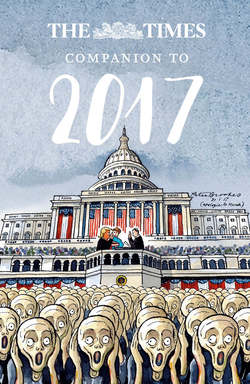Читать книгу The Times Companion to 2017: The best writing from The Times - Ian Brunskill - Страница 19
ОглавлениеLET’S STOP BEING SO PARANOID ABOUT ANDROIDS
Matt Ridley
NOVEMBER 21 2016
THE TECH INDUSTRY, headquartered in Silicon Valley, is populated largely by enthusiastic optimists who want to change the world and believe they can. Yet there is one strand of pessimism that you hear a lot there: the robots are going to take all our jobs. With artificial intelligence looming, human beings are facing redundancy and obsolescence. However, I think this neo-Luddite worry is as wrong now as it was in Ned Ludd’s day.
“Any job that is on some level routine is likely to be automated, and if we are to see a future of prosperity rather than catastrophe we must act now,” warns Martin Ford, a Silicon Valley entrepreneur, in his book The Rise of the Robots.
“With the technology advances that are presently on the horizon, not only low-skilled jobs are at risk; so are the jobs of knowledge workers. Too much is happening too fast,” says a Silicon Valley guru, Vivek Wadhwa.
“Think of it as a kind of digital social Darwinism, with clear winners and losers: those with the talent and skills to work seamlessly with technology and compete in the global marketplace are increasingly rewarded, while those whose jobs can just as easily be done by foreigners, robots or a few thousand lines of code suffer accordingly,” says Tyler Cowen, an economist at George Mason University, Virginia, in his book Average is Over.
Yet we have been automating work for two centuries and so far the effect has been to create more jobs, not fewer. Farming once employed more than 90 per cent of people, and without them we would have starved. Today, it’s just a few per cent. Followers of the mysterious “Captain Swing” who destroyed threshing machines in 1830 were convinced that machines stole work. Instead of which, farm labourers became factory workers; factory workers later became call-centre workers. In both transitions, pay rose and work became safer, less physically demanding and less exposed to the elements.
In 1949 the cybernetics pioneer Norbert Wiener warned that computers in factories could usher in “an industrial revolution of unmitigated cruelty”. In 1964 a panel of the great and the good, including the Nobel prizewinners Linus Pauling and Gunnar Myrdal, warned that automation would mean “potentially unlimited output … by systems of machines which will require little co-operation from human beings”. This hoary old myth just keeps coming round again and again.
